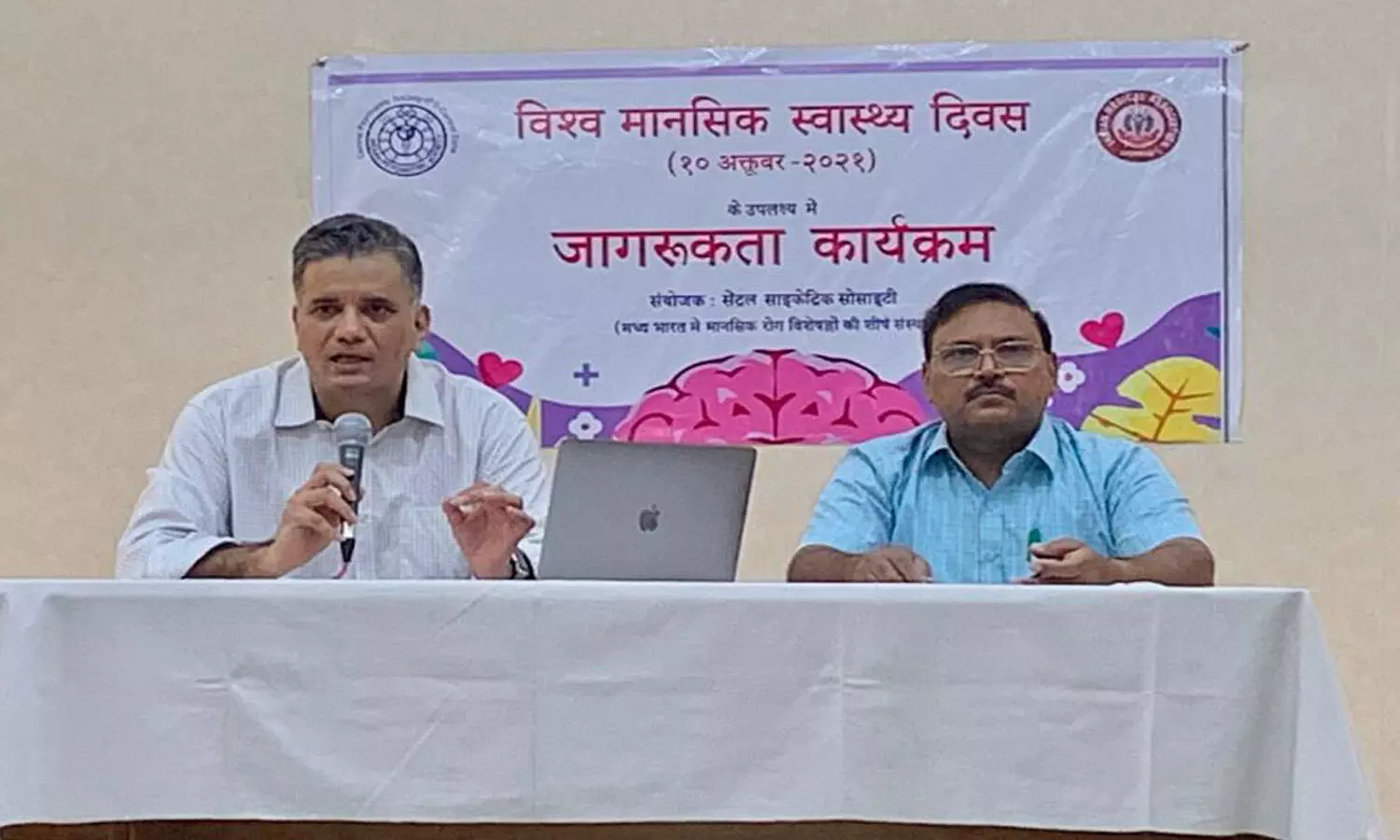TRENDING TAGS :
World Mental Health Day 2021: 'The health argument' was organized in Lucknow to raise awareness
World Mental Health Day is celebrated on October 10 across the globe to raise awareness and the importance of mental health among people.
World Mental Health Day is celebrated on October 10 across the globe to raise awareness and the importance of mental health among people. Irrespective of the fact that we live in modern society, mental health is treated as taboo, and due to this, people are unable to get the right advice and treatment for their mental illnesses. For this, an awareness programme 'The health argument' was organized at Lucknow.
The health argument
• Close to one billion people have a mental disorder and anyone, anywhere, can be affected.
• Depression is a leading cause of disability worldwide and is a major contributor to the overall global burden of disease. Globally, it is estimated that 5% of adults suffer from depression.
• Globally, one in seven 10-19-year-olds experience a mental disorder. Half of all such disorders start by age 14 years but most are undetected and untreated.
• People with severe mental disorders such as schizophrenia tend to die 10-20 years earlier than the general population.
• One in every 100 deaths is by suicide. It is the fourth leading cause of death for young people aged 15-29 years.
• The COVID-19 pandemic has had a considerable impact on people's mental health.
• According to the National Mental Health Survey (NMHS), , The overall current mental health morbidity was 10.6% of which 10% prevalence was accounted for by Common Mental Disorders (CMDs), which include depression, anxiety, and substance abuse.
• Literature highlights that child and adolescent age group are severely affected, and suicide is emerging as a major concern with 1% population reported to have high suicide risk.
• 30% of patients attending general medical clinic are suffering from CMDs. (Avasthi et al Indian J Med Res. 2008;127:159–64
The care gap
• Despite the universal nature and the magnitude of mental ill health, the gap between demand for mental health services and supply remains substantial.
• Relatively few people around the world have access to quality mental health services.
• The serious gaps that still exist in mental health care are a result of chronic under-investment over many decades in mental health promotion, prevention and care.
• Stigma, discrimination and human rights abuses of people with mental health conditions remain widespread.
• According to the National Mental Health Survey (NMHS), the treatment gap of any mental disorder in India was reported to be as high as 83%.
The economic cost
• The lost productivity resulting from depression and anxiety, two of the most common mental disorders, costs the global economy US$ 1 trillion each year.
The investment deficit
• On average, countries spend just 2% of their national health budgets on mental health. This has changed little in recent years.
• Despite an increase of development assistance for mental health in recent years, it has never exceeded 1% of development assistance for health.
The good news
• Some of the most common mental health conditions, depression and anxiety, can be treated with talking therapies, medication, or a combination of these.
• For every US$ 1 invested in scaled-up treatment for depression and anxiety, there is a return of US$ 5.
• For every US$ 1 invested in evidence-based treatment for drug dependence, there is a return of up to US$ 7 in reduced crime and criminal justice costs.
• Generalist health workers can be trained to diagnose and treat mental health conditions.
• Regular health checks of people with severe mental disorders can prevent premature death.
• The quality of life of people living with conditions such as autism and dementia can be greatly improved when their caregivers receive appropriate training.
• The rights of people living with mental health conditions can be protected and promoted through mental health legislation, policy, development of affordable, quality community-based mental health services and the involvement of people with lived experience.
Post Covid data
Sleep problems: 18% general population
57% Covid-19 patients
Psychological and behavioural impact of Lockdown & Quarnatine measures on children, adolscents and caregivers.
• 34.5 % Anxiety
• 41.7 % Depression
• 42.3 % Irritability
• 30.8% Inattention
• 22.5% Significant fear of Covid
Psychological and behavioural impact of Covid -19 on healthcare workers.
• 30 % Anxiety
• 31.1 % Depression
• 56.5 % Acute stress
• 44% Sleep Disorders
• 20.2% Post traumatic stress
Types of post Covid brain syndromes
• Delirium
• Dementia
• Brain fog
• Depression and anxiety symptoms
• Obsessive-compulsive symptoms
• Suicidality
• Psychosis
• PTSD
Domestic Violence increased by mean effect size of 0.66.
Loneliness caused by social isolation has been associated with impaired cognitive function in the elderly.
Stay tuned with the newstrack to get fastest updates. Click @englishnewstrack to follow us on Facebook and @newstrackmedia to follow on Twitter.



